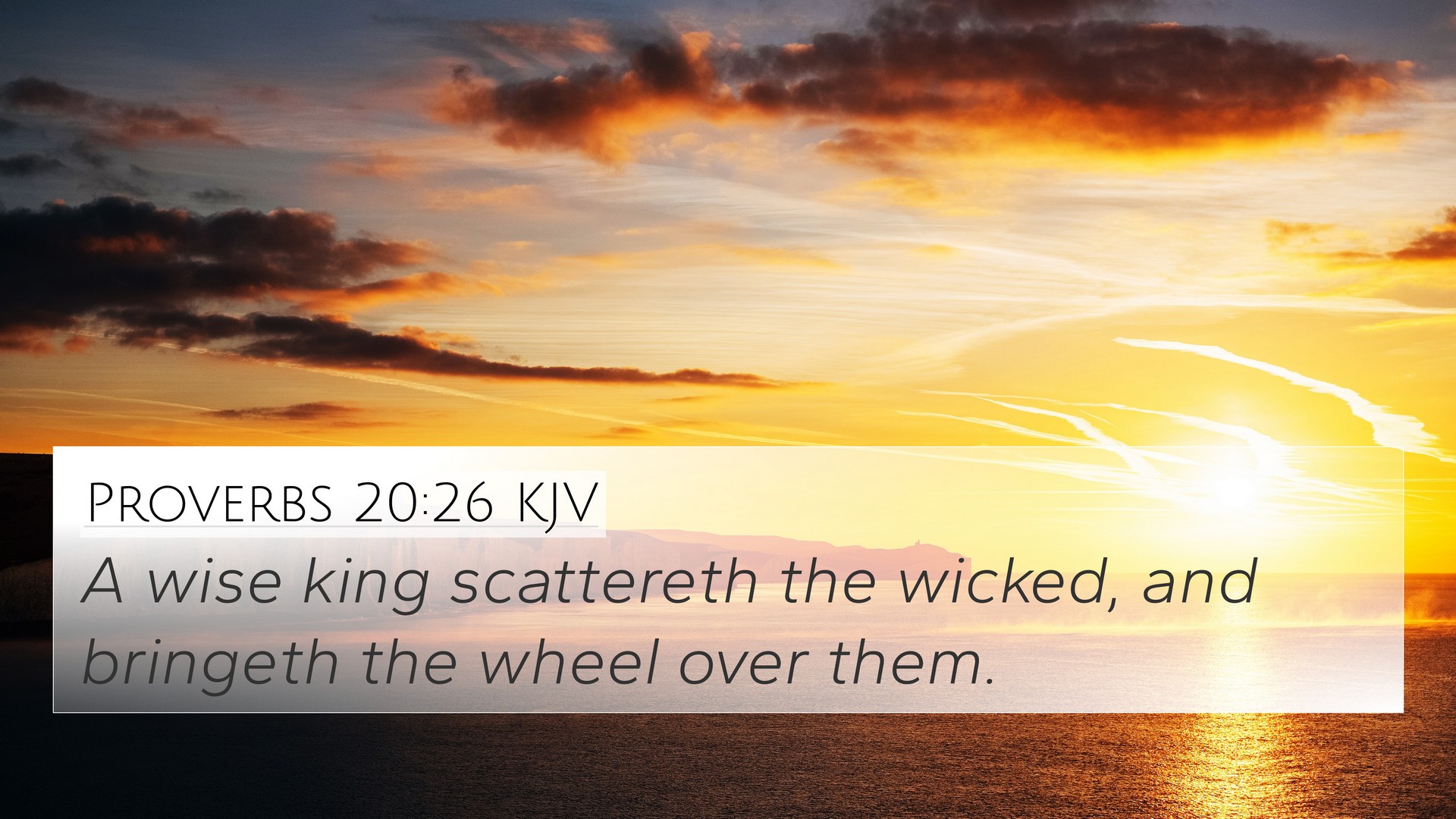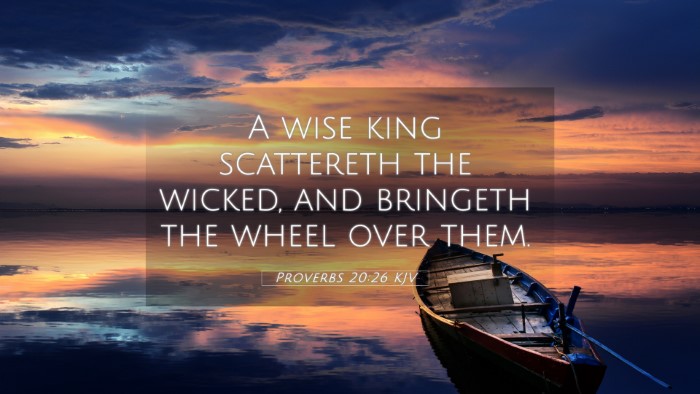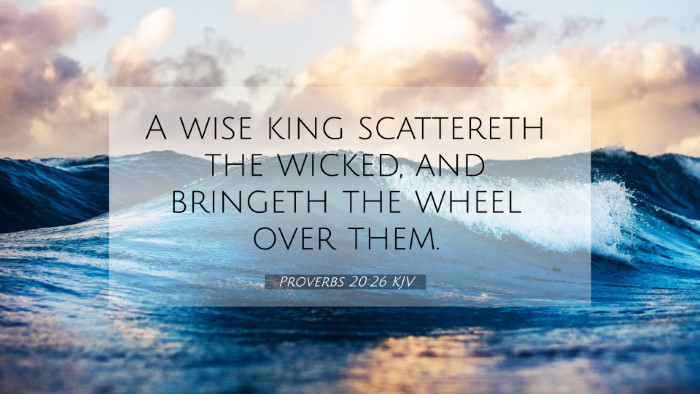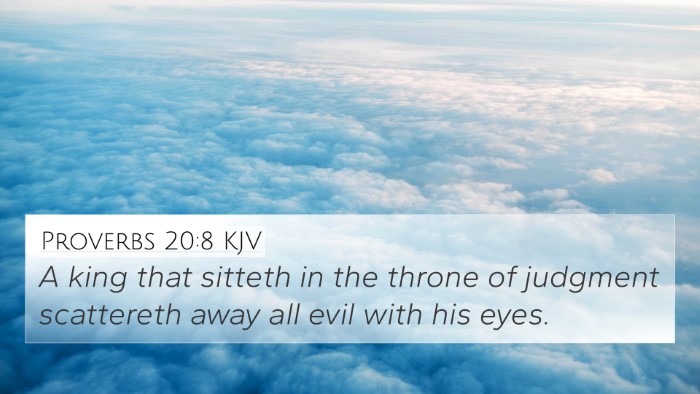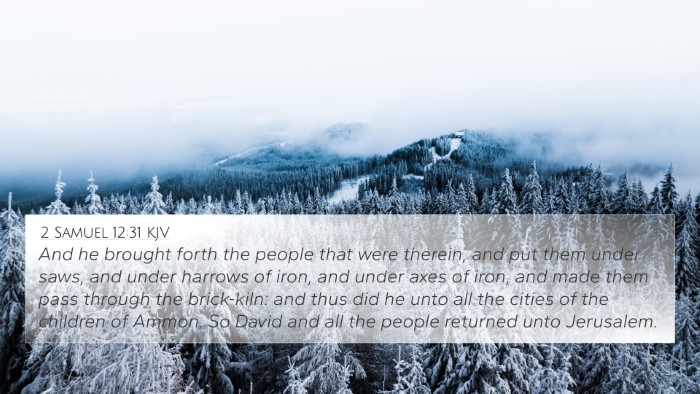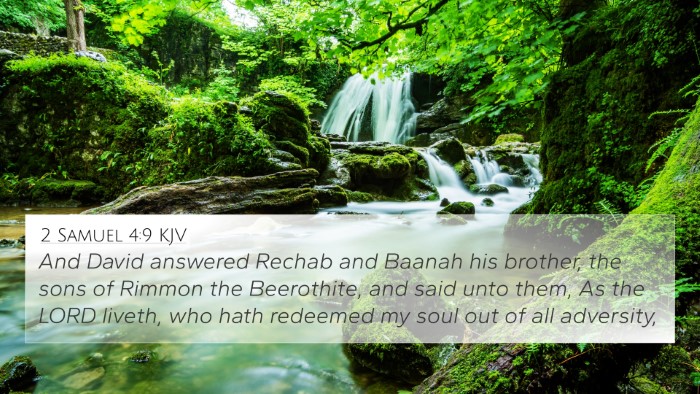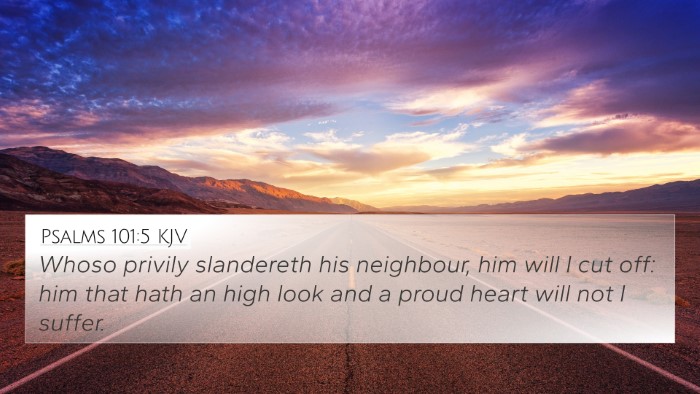Understanding Proverbs 20:26
Proverbs 20:26 states:
"A wise king winnows the wicked, and drives the wheel over them."
The verse encompasses the themes of justice, discernment, and the king's role in governance. Let us explore its meaning and implications through insights gathered from various public domain commentaries.
Summary of Insights
This verse illustrates the essential quality of wisdom in leadership. It conveys the idea that a judicious ruler carefully discerns the righteous from the wicked, ensuring that justice prevails. The metaphor of "winnowing" signifies a thorough examination, much like separating grain from chaff, thus emphasizing not only the authority of the king but also his responsibility in maintaining order.
Analysis from Commentaries
-
Matthew Henry:
Henry points out that the role of a king is not merely administrative but deeply moral. A wise king possesses the ability to recognize moral integrity and is equipped to remove those who could harm the justice system. His decisions are driven by wisdom rather than impulse.
-
Albert Barnes:
Barnes emphasizes the action of "driving the wheel" as a representation of the king’s authority to enact punishment or justice upon the wicked. This wheel symbolizes the unstoppable force of divine justice, reminiscent of the inevitable consequences that follow moral transgressions.
-
Adam Clarke:
According to Clarke, the process of winnowing and driving the wheel serves as a dual metaphor for both discernment and action. It highlights the responsibility of leaders to act decisively against wrongdoing while also encouraging thorough scrutiny of their subjects.
Cross-References
Proverbs 20:26 shares connections with several other Bible verses that elaborate on similar themes:
- Proverbs 25:4: "Take away the dross from the silver, and there shall come forth a vessel for the finer." - This verse reinforces the concept of purifying and separating the good from the bad.
- Isaiah 11:3-4: "And shall make him of quick understanding in the fear of the Lord: and he shall not judge after the sight of his eyes, neither reprove after the hearing of his ears: But with righteousness shall he judge the poor..." - Pertaining to the wisdom and justice of God's leader.
- Psalm 1:5: "Therefore the ungodly shall not stand in the judgment, nor sinners in the congregation of the righteous." - This verse echoes the ultimate downfall of the wicked in the face of divine judgment.
- 1 Peter 2:14: "Or unto governors, as unto them that are sent by him for the punishment of evildoers..." - Relating to the duty of authority figures to maintain justice.
- Matthew 13:30: "Let both grow together until the harvest: and in the time of harvest I will say to the reapers, Gather ye together first the tares, and bind them in bundles to burn them: but gather the wheat into my barn." - Reflections on the separation of the good from the bad at the end times.
- Romans 13:3-4: "For rulers are not a terror to good works, but to the evil. Wilt thou then not be afraid of the power? do that which is good..." - Expounding on the purpose of rulers to uphold good and punish wrongdoing.
- Proverbs 21:15: "It is joy to the just to do judgment: but destruction shall be to the workers of iniquity." - A reminder of the joy found in just actions and the consequences for wickedness.
Thematic Connections
Overall, the themes present in Proverbs 20:26 invite further exploration into the nature of justice as seen throughout Scripture. The king's ability to discern reflects a broader divine principle of separation and accountability. By linking this verse with others, we deepen our understanding of God's expectations for leadership and morality.
Tools for Bible Cross-Referencing
To study these connections effectively, various tools can assist in Bible cross-referencing:
- Using a Bible concordance can help locate specific verses based on keywords and concepts.
- A cross-reference Bible study can reveal relationships between verses across the Old and New Testaments.
- Many Bible reference resources provide thematic links and verse analyses that enhance understanding.
Conclusion
In conclusion, Proverbs 20:26 teaches the essential quality of discernment in leadership. By engaging in comparative Bible verse analysis and exploring cross-referenced themes, one may gain a more profound insight into the biblical directives around justice, leadership, and moral responsibility. This verse forms a part of an inter-Biblical dialogue that invites readers to examine the constancy of God’s justice through various scriptural narratives.
